Although most relationships are pregnant with love and happy memories, a dysfunctional relationship is riddled with conflict, heartache and warning signs.
The toxic trap of a dysfunctional relationship
Recognizing when a beautiful relationship has become toxic and dysfunctional can be difficult to say the least. Realizing that your relationship has changed from being comforting, supportive and loving into a source of constant emotional turmoil and anxiety can be one of the worst experiences in life.
Clinical psychologist & marriage counselor Randi Gunther Ph.D. believes that all romantic “relationships are more or less dysfunctional in different ways.” In a Psychology Today article, she writes “In order to stay in a committed relationship, most intimate partners adapt to many disappointments and disillusionments during the time they’re together. If there is enough good in the relationship to compensate, they weather those distresses and continue to love each other.”
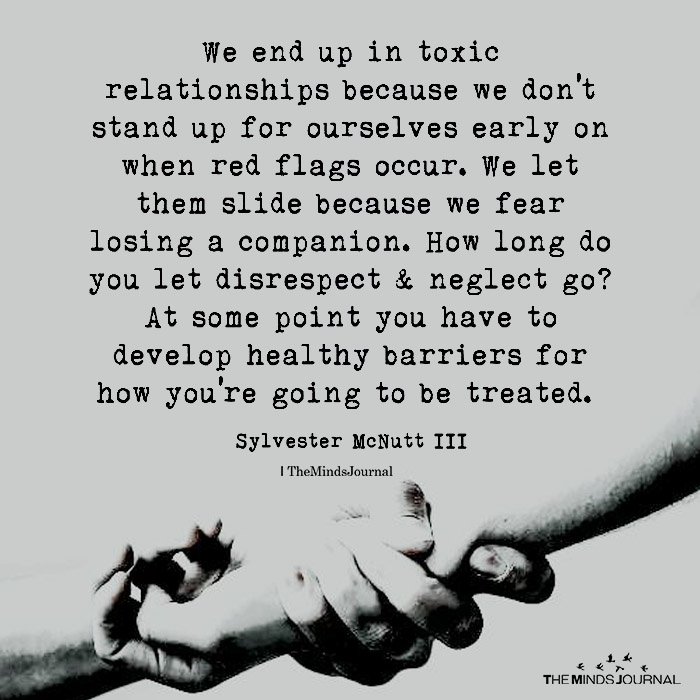
However, the relationship can get weaker if the pain becomes stronger than the love. Randi adds “Significantly painful events that occur during that time can be deal-breakers. Even initially 90% positive relationships can fail after too many broken promises or repeatedly unresolved conflicts. Suppressed disillusionments weaken that foundation and make the relationship more likely to fail.”
Think you’re in a toxic relationship? Read 5 Ways You Feel When In A Toxic Relationship

Why a relationship turns toxic
Relationship therapist Dr. Deborah Hecker explains “It is common sense to say that we enter relationships expecting them to be emotionally supportive, mutually enhancing and full of good communication. Unfortunately, sometimes we feel worse after spending time with our significant other.”
But why? Why do we end up in a dysfunctional relationship? Why don’t we choose to be with someone who is more compatible? Unhealed wounds from childhood attachments may be the answer, believes Deborah. And these early childhood attachments often tend to influence our adult relationships. She adds “ Instead of looking to ourselves to heal these wounds, we tend to expect our partners, who may also be carrying around past wounds, to make us feel whole…..a recipe for a dysfunctional partnership.”
However, starting to acknowledge that you are in an unhealthy relationship can start the healing process. Identifying all the redflags and signs that your relationship has become dysfunctional can help you either fix the relationship or empower you to walk away. Dr. Randi Gunther believes that exploring and identifying the “typical relationship damagers” can actually be helpful. She explains “Had the partners recognized them as they were occurring, they might have had a different perspective and learned some new ways to cope before it was too late. By understanding what their dysfunctional patterns are, couples can strive to overcome them.”
Has your relationship turned toxic? Read Why Romance Turns Toxic: The Psychology Behind Love & Relationships
Signs of a dysfunctional relationship
There are many warning signs of a dysfunctional relationship that need to be confronted if you want to prevent your relationship from falling apart. Here are 7 signs of a dysfunctional relationship that you must know about.
1. Having the same argument repeatedly
Do you find yourself having the same fight with your partner without resolving it? Communication is crucial for all healthy relationships. When you fail to listen, understand, communicate and resolve differences with your partner, your relationship starts to break. If you repeatedly fight about events that occured months or years ago without any resolution, then your relationship is turning toxic.
According to an article in the Good Men Project, “Communication stops working. Agreement on almost anything becomes impossible. You each have different versions of reality…You have the same argument over and over again and never resolve it. This is perhaps the most obvious sign that something is wrong.”
2. The blame game
In a dysfunctional relationship, one partner will always blame the other for everything that goes wrong. A toxic partner will never take the responsibility and will always shift the blame on you. They will never be accountable even for their own mistakes. In fact, such behavior can even lead to physical, verbal and emotional abuse.
Love your toxic partner? Read How Can I Love Someone Who Abuses Me? Psychology of Toxic Relationships
Randi Gunther Ph.D. writes “No one feels good when their partners are disappointed, disillusioned, or blaming them. If accusations of blame were not thrown around in the beginning, and replaced with mutual and willing accountability, most partners would be more open to a more effective resolution.” Being accountable for your actions is the secret to a happy relationship.
3. Power imbalance
In a healthy relationship, both partners hold equal power to influence each other’s choices and to guide them. However, in a dysfunctional relationship, power is impaired. You will feel like your partner is controlling most of your decisions. You will also feel that you are putting in a lot more effort than your partner to keep the relationship going. You are the only one who is making the compromises and the sacrifices and getting very little in return. As your partner becomes more controlling, they will tend to disrespect you more and you will be afraid to express yourself honestly.
Dr. Gunther adds “If the relationship is a power hierarchy where one partner consistently is on top, the other, more adaptive partner will eventually lose hope and stop fighting as hard in succeeding conflicts. That leaves all the responsibility for the outcome on the shoulders of the top guy, and submission, martyrdom, and resentment in the emotional belly of the other.”
4. You feel like a different person
You have become aware of your words, behavior and actions as your partner tends to be highly critical of you. You try to change your thoughts, opinions and perceptions to meet your partner’s expectations either to please them constantly or out of fear. Your friends and family repeatedly remind you that you have changed as a person. And deep down inside you know they are right. This is one of the most harmful signs of a dysfunctional relationship. If you start becoming more submissive to your dominant partner, then it’s high time that you take a stand or just leave.
Are you changing? Read Are You Losing Yourself In Your Relationship? Stages of Codependency and what you can do about it
5. A feeling of guilt
Do you find yourself apologizing to your partner more than you should? Do you feel guilty every time you feel like expressing yourself? Then you’re in a dysfunctional relationship. Love is not supposed to make you feel guilty about being yourself. According to The Good Men Project “It becomes a joke, the way you take the fall for everything, but it’s not funny, and you begin to feel worthless and ashamed. Your partner’s angry reactions become justified, and the increasingly unreasonable demands become givens, with any resistance viewed as disloyalty and cause for character assassination.”
6. Infidelity & lack of trust
Doubt or a lack of trust is a prominent sign of a dysfunctional relationship. If you believe your partner is having an affair or if you are experiencing infidelity in your relationship, then it is imperative that you address the issue immediately with your significant other. If you don’t, your relationship will get further damaged as fights will get uglier and you will feel more insecure and uncertain.
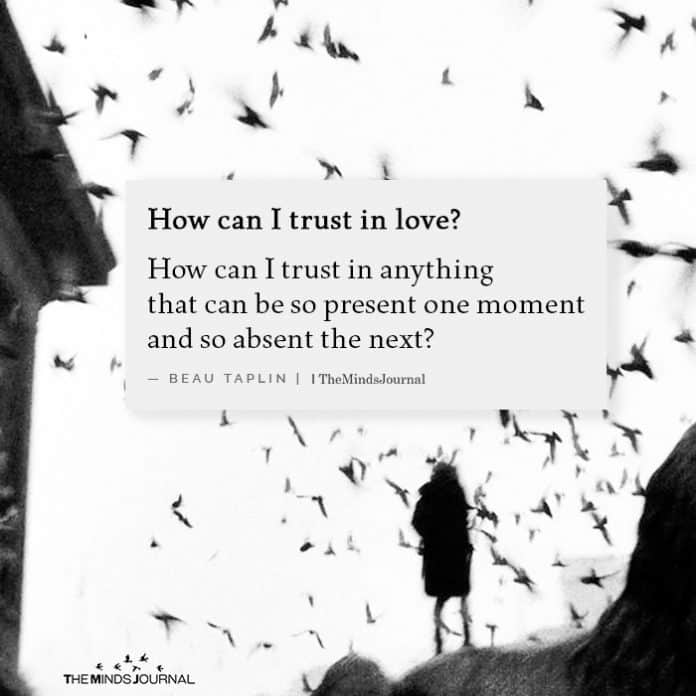
In her article, Randi Gunther Ph.D. writes “Destructive triangles are often part of dysfunctional relationships. One partner talks to someone outside the relationship about the intimate situations that lie within it without the other partner’s knowing or consent. That confidante then knows things about that partner they may have no right to know.”
Feeling insecure? Read Become A Relationship Superhero: How To Turn Insecurity Into A Superpower
7. You are unhappy
Are you happy in your relationship? If not, then it is the biggest sign that you’re in a dysfunctional relationship. Of course, every relationship goes through some difficulties and at times you will feel upset at your partner no matter how great they are. Every relationship has arguments. But, if you’re feeling unhappy constantly then you may need to change your perception.
Ask yourself why you are unhappy with your relationship? What has shifted the vibe of the relationship? Why do you constantly feel disappointed and let down by your partner? When your partner fails to meet your emotional and psychological needs, then you will start feeling bogged down emotionally. Being in a constant state of unhappiness will not only create cracks in your relationship and take you further away from your partner, it will also affect your self image and self esteem as well.
Apart from these, there are some other common signs of a dysfunctional relationship, including –
- You feel emotionally disconnected from your partner
- You feel hopeless
- You don’t get enough alone time
- You question your relationship continuously
- Your partner is not concerned about your needs
- You’re responsible for your partner’s happiness
- You constantly doubt your behavior and actions
- Your partner criticizes you regularly
- You need your partner’s consent to meet someone or do something
- You have to defend your partner around your family & friends
- You live in insecurity and uncertainty
- Your partner frequently threatens to abandon or leave you
- Your partner has a sense of ownership over you
- Your relationship has no clear personal boundaries
- Your partner keeps you isolated from your friends and family
- Your partner uses abusive behavior and language leading to domestic violence
Are you in a dysfunctional relationship?
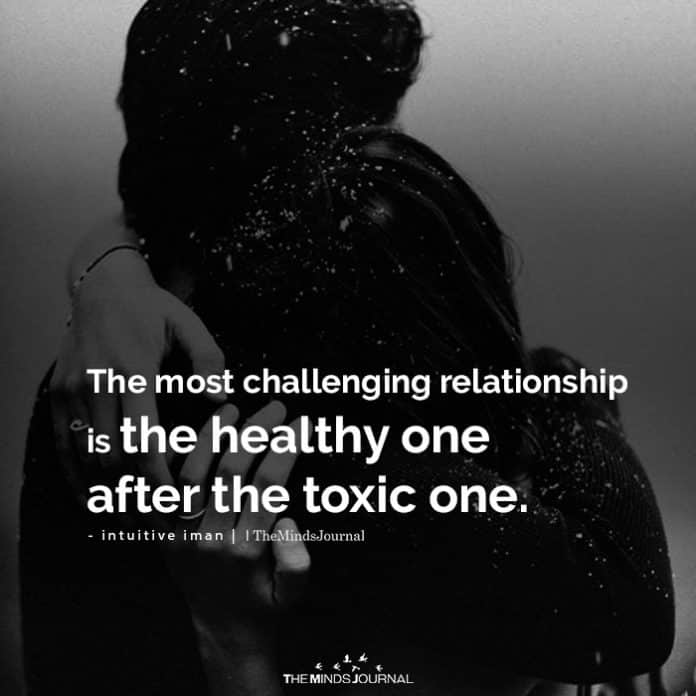
Every romantic relationship is full of challenges and we try our best to overcome it by avoiding conflict, resentment or emotional disconnection. However, if both partners make compromises and sacrifices equally and try to understand each other and practice good and open communication, a healthy, loving relationship can last a lifetime.
However, if you are in a dysfunctional relationship, you will find the difficulties and conflicts growing with each passing day despite your best efforts. When we are invested in an unhealthy relationship, we often resort to toxic strategies to either hold on to the relationship or to protect ourselves. But all this can only make things worse for both you and your partner.
Relationship therapist Dr. Deborah Hecker explains “In order for a toxic relationship to heal, each party must be willing to take full ownership of their contribution to the dysfunction.” However, if your partner is not willing to own up to their faults and if you feel that your relationship is beyond repair, then it just might be better to walk away.
Deborah concludes “If you find yourself trapped in a damaging relationship in which your partner is unwilling to claim their role in it and continues to use toxic weapons such as intimidation, guilt, shame, withholding affection….look for the exit door. No matter how much you think you can change your partner for the better, you simply cannot.”
Want more? Read How Letting Go Of A Toxic Relationship Can Save Your Life
Here is an interesting video that you may find helpful:



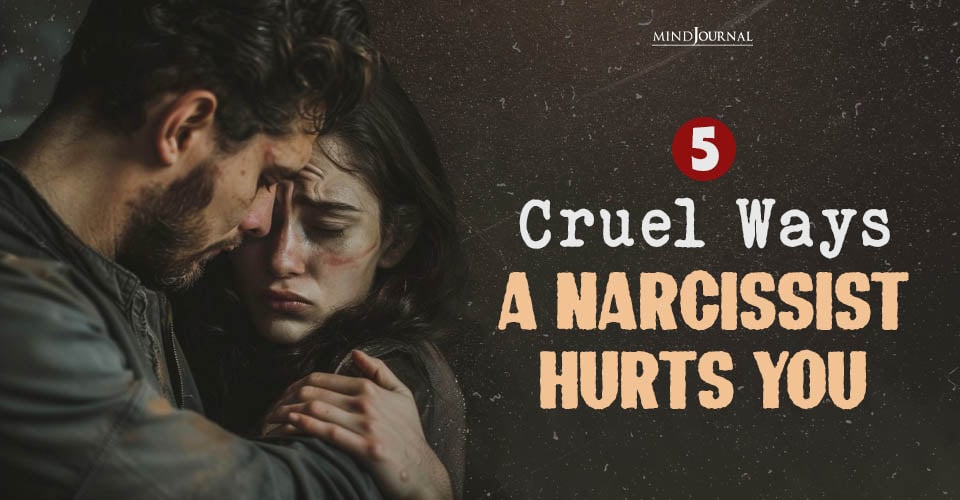




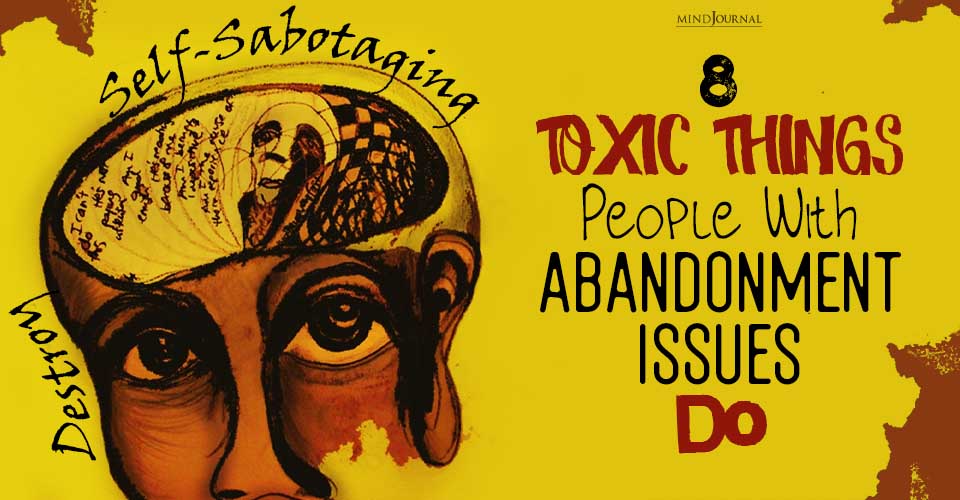

Leave a Reply